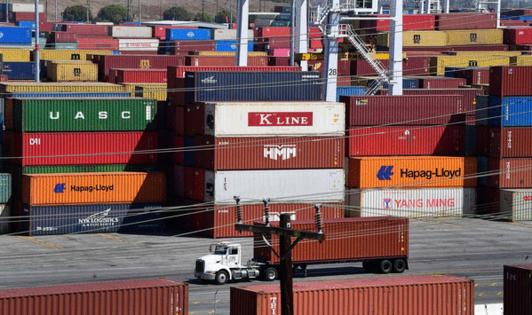Small US firms paying Trump tariffs face a $202 billion hit
Published in Business News
Small U.S. companies, the source of more than half of the country’s job creation in recent years, are struggling to comply with President Donald Trump’s new tariffs and cope with growing financial strains clobbering them from higher import costs.
Last week’s country-specific levies varying from 10% to 50% landed with a one-two punch: additional red tape issued by Customs and Border Protection, and a need to increase customs bonds — guarantees that companies must buy from surety providers to ensure the government receives its tariff revenue, other taxes and any potential penalties.
Big firms often have in-house resources to handle such administrative changes and costs, but compliance and forecasting in the new tariff regime are “where the smaller companies are really struggling,” said Erin Williamson, vice president of U.S. customs brokerage at Levallois-Perret, France-based Geodis, a leading global logistics firm.
“They may not have that internal compliance group or the infrastructure to really sit back and say, ‘OK, this is going to be the impact to us. How do we pivot?’ ” Williamson said in an interview Friday.
The U.S. Chamber of Commerce estimated this month that the country has about 236,000 small-business importers — those with fewer than 500 employees. The goods they bought from abroad were worth more than $868 billion in 2023.
Based on an estimate before Trump’s duties took effect Aug. 7, the combined annual tariff hit to those companies is $202 billion, according to the chamber, the nation’s largest business lobbying group. That works out to about $856,000 per firm a year.
Consumer prices
Through June, businesses in the U.S. absorbed more than half the cost of Trump’s tariffs, with the rest picked up by foreign exporters and American consumers, according to a research note Sunday from Goldman Sachs economists. In coming months, the burden will shift away from importers and the share shouldered by consumers will rise to 67%, it said.
Until then, the National Retail Federation is echoing the U.S. Chamber’s concerns, posting on its website a series of stories about entrepreneurs who worry they won’t be able to withstand Trump’s plan to reconfigure the global trading system using tariff barriers.
“Small businesses especially are grappling with the ability to stay in business,” NRF Vice President for Supply Chain and Customs Policy Jonathan Gold said in a statement last week.
The NRF and Hackett Associates produce a monthly outlook in their Global Port Tracker that forecasts a sharp drop in U.S. imports starting in September after first-half gains — a turnaround tied to Washington’s “hither-and-thither approach of on-again, off-again tariffs,” Hackett Associates Founder Ben Hackett said.
‘Boxed out’
On Monday, Trump reiterated that the levies are benefiting the economy. “Tariffs are making our Country Strong and Rich!!!” he posted on Truth Social.
White House spokesman Kush Desai said American businesses small and large “have been unfairly boxed out of foreign markets for decades due to one-sided ‘free’ trade arrangements that left American industries and workers behind,” he said.
Trump has used tariffs and economic leverage, Desai said, “to rewrite the rules of global trade and ensure fairer access for American industrial and agricultural exports to countries that in total have a $32 trillion economy and 1.2 billion people.”
For U.S. businesses, though, it’s not just the higher duties they’re paying that matter, “it’s the operational disruption and uncertainty the new measures risk creating,” said John Denton, secretary general of the International Chamber of Commerce.
“Even multinational companies with sophisticated trade compliance functions are struggling to understand what tariff rate will apply to shipments given the complex web of measures now in place — as well as continued uncertainty about how core provisions will be enforced,” Denton said.
‘Clearer guidance’
He urged the Trump administration to “provide clearer guidance on implementation — particularly to ensure that small businesses aren’t damaged by red tape alone.”
A lack of clarity in the implementation of Trump’s so-called reciprocal tariffs has already sown confusion.
A ruling by the CBP to impose tariffs on some gold imports — announced privately in a letter to a Swiss refiner on July 31 and made public Friday — sent bullion futures in New York soaring to a record.
Then, prices tumbled just as quickly after the Trump administration suggested imports of gold bars wouldn’t face tariffs after all.
“We used to have a pretty simple trade policy: Most countries had most-favored nation status so you had the same tariff for every country pretty much, and Customs had a pretty simple job,” Nobel laureate Paul Krugman, a distinguished professor at the City University of New York, said during an interview with Bloomberg Television on Friday. “What we’re seeing is a symptom of trade policy that is too complex for the bureaucracy we have to handle it.”
(With assistance from Hadriana Lowenkron, Alex Tanzi and Alister Bull.)
©2025 Bloomberg L.P. Visit bloomberg.com. Distributed by Tribune Content Agency, LLC.












Comments